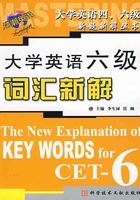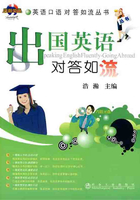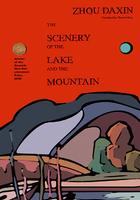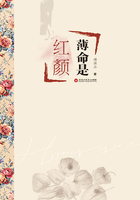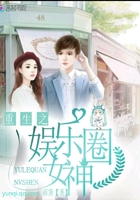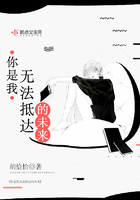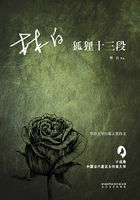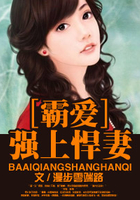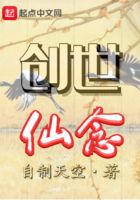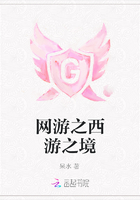Chapter I
It is with a kind of fear that I begin to write the history of my life. I have, as it were, a superstitious hesitation in lifting the veil that clings about my childhood like a golden mist. The task of writing an autobiography is a difficult one. When I try to classify my earliest impressions, I find that fact and fancy look alike across the years that link the past with the present. The woman paints the child's experiences in her own fantasy. A few impressions stand out vividly from the first years of my life; but "the shadows of the prison-house are on the rest." Besides, many of the joys and sorrows of childhood have lost their poignancy; and many incidents of vital importance in my early education have been forgotten in the excitement of great discoveries. In order, therefore, not to be tedious I shall try to present in a series of sketches only the episodes that seem to me to be the most interesting and important.
I was born on June 27, 1880, in Tuscumbia, a little town of northern Alabama.
The family on my father's side is descended from Caspar Keller, a native of Switzerland, who settled in Maryland. One of my Swiss ancestors was the first teacher of the deaf in Zurich and wrote a book on the subject of their education—rather a singular coincidence; though it is true that there is no king who has not had a slave among his ancestors, and no slave who has not had a king among his.
My grandfather, Caspar Keller's son, "entered" large tracts of land in Alabama and finally settled there. I have been told that once a year he went from Tuscumbia to Philadelphia on horseback to purchase supplies for the plantation, and my aunt has in her possession many of the letters to his family, which give charming and vivid accounts of these trips.
My Grandmother Keller was a daughter of one of Lafayette's aides, Alexander Moore, and granddaughter of Alexander Spotswood, an early Colonial Governor of Virginia. She was also second cousin to Robert E. Lee.
My father, Arthur H. Keller, was a captain in the Confederate Army, and my mother, Kate Adams, was his second wife and many years younger. Her grandfather, Benjamin Adams, married Susanna E. Goodhue, and lived in Newbury, Massachusetts, for many years. Their son, Charles Adams, was born in Newburyport, Massachusetts, and moved to Helena, Arkansas. When the Civil War broke out, he fought on the side of the South and became a brigadier-general. He married Lucy Helen Everett, who belonged to the same family of Everetts as Edward Everett and Dr. Edward Everett Hale. After the war was over the family moved to Memphis, Tennessee.
I lived, up to the time of the illness that deprived me of my sight and hearing, in a tiny house consisting of a large square room and a small one, in which the servant slept. It is a custom in the South to build a small house near the homestead as an annex to be used on occasion. Such a house my father built after the Civil War, and when he married my mother they went to live in it. It was completely covered with vines, climbing roses and honeysuckles. From the garden it looked like an arbour. The little porch was hidden from view by a screen of yellow roses and Southern smilax. It was the favourite haunt of humming-birds and bees.
The Keller homestead, where the family lived, was a few steps from our little rose-bower. It was called "Ivy Green" because the house and the surrounding trees and fences were covered with beautiful English ivy. Its old-fashioned garden was the paradise of my childhood.
Even in the days before my teacher came, I used to feel along the square stiff boxwood hedges, and, guided by the sense of smell would find the first violets and lilies. There, too, after a fit of temper, I went to find comfort and to hide my hot face in the cool leaves and grass. What joy it was to lose myself in that garden of flowers, to wander happily from spot to spot, until, coming suddenly upon a beautiful vine, I recognized it by its leaves and blossoms, and knew it was the vine which covered the tumble-down summer-house at the farther end of the garden! Here, also, were trailing clematis, drooping jessamine, and some rare sweet flowers called butterfly lilies, because their fragile petals resemble butterflies' wings. But the roses—they were loveliest of all. Never have I found in the greenhouses of the North such heart-satisfying roses as the climbing roses of my southern home. They used to hang in long festoons from our porch, filling the whole air with their fragrance, untainted by any earthy smell; and in the early morning, washed in the dew, they felt so soft, so pure, I could not help wondering if they did not resemble the asphodels of God's garden.
The beginning of my life was simple and much like every other little life. I came, I saw, I conquered, as the first baby in the family always does. There was the usual amount of discussion as to a name for me. The first baby in the family was not to be lightly named, every one was emphatic about that. My father suggested the name of Mildred Campbell, an ancestor whom he highly esteemed, and he declined to take any further part in the discussion. My mother solved the problem by giving it as her wish that I should be called after her mother, whose maiden name was Helen Everett. But in the excitement of carrying me to church my father lost the name on the way, very naturally, since it was one in which he had declined to have a part. When the minister asked him for it, he just remembered that it had been decided to call me after my grandmother, and he gave her name as Helen Adams.
I am told that while I was still in long dresses I showed many signs of an eager, self-asserting disposition. Everything that I saw other people do I insisted upon imitating. At six months I could pipe out "How d'ye," and one day I attracted every one's attention by saying "Tea, tea, tea" quite plainly. Even after my illness I remembered one of the words I had learned in these early months. It was the word "water," and I continued to make some sound for that word after all other speech was lost. I ceased making the sound "wah-wah" only when I learned to spell the word.
They tell me I walked the day I was a year old. My mother had just taken me out of the bath-tub and was holding me in her lap, when I was suddenly attracted by the flickering shadows of leaves that danced in the sunlight on the smooth floor. I slipped from my mother's lap and almost ran toward them. The impulse gone, I fell down and cried for her to take me up in her arms.
These happy days did not last long. One brief spring, musical with the song of robin and mocking-bird, one summer rich in fruit and roses, one autumn of gold and crimson sped by and left their gifts at the feet of an eager, delighted child. Then, in the dreary month of February, came the illness which closed my eyes and ears and plunged me into the unconsciousness of a new-born baby. They called it acute congestion of the stomach and brain. The doctor thought I could not live. Early one morning, however, the fever left me as suddenly and mysteriously as it had come. There was great rejoicing in the family that morning, but no one, not even the doctor, knew that I should never see or hear again.
I fancy I still have confused recollections of that illness. I especially remember the tenderness with which my mother tried to soothe me in my waling hours of fret and pain, and the agony and bewilderment with which I awoke after a tossing half sleep, and turned my eyes, so dry and hot, to the wall away from the once-loved light, which came to me dim and yet more dim each day. But, except for these fleeting memories, if, indeed, they be memories, it all seems very unreal, like a nightmare. Gradually I got used to the silence and darkness that surrounded me and forgot that it had ever been different, until she came—my teacher—who was to set my spirit free. But during the first nineteen months of my life I had caught glimpses of broad, green fields, a luminous sky, trees and flowers which the darkness that followed could not wholly blot out. If we have once seen, "the day is ours, and what the day has shown."
Chapter II
I cannot recall what happened during the first months after my illness. I only know that I sat in my mother's lap or clung to her dress as she went about her household duties. My hands felt every object and observed every motion, and in this way I learned to know many things. Soon I felt the need of some communication with others and began to make crude signs. A shake of the head meant "No" and a nod, "Yes," a pull meant "Come" and a push, "Go." Was it bread that I wanted? Then I would imitate the acts of cutting the slices and buttering them. If I wanted my mother to make ice-cream for dinner I made the sign for working the freezer and shivered, indicating cold. My mother, moreover, succeeded in making me understand a good deal. I always knew when she wished me to bring her something, and I would run upstairs or anywhere else she indicated. Indeed, I owe to her loving wisdom all that was bright and good in my long night.
I understood a good deal of what was going on about me. At five I learned to fold and put away the clean clothes when they were brought in from the laundry, and I distinguished my own from the rest. I knew by the way my mother and aunt dressed when they were going out, and I invariably begged to go with them. I was always sent for when there was company, and when the guests took their leave, I waved my hand to them, I think with a vague remembrance of the meaning of the gesture. One day some gentlemen called on my mother, and I felt the shutting of the front door and other sounds that indicated their arrival. On a sudden thought I ran upstairs before any one could stop me, to put on my idea of a company dress. Standing before the mirror, as I had seen others do, I anointed mine head with oil and covered my face thickly with powder. Then I pinned a veil over my head so that it covered my face and fell in folds down to my shoulders, and tied an enormous bustle round my small waist, so that it dangled behind, almost meeting the hem of my skirt. Thus attired I went down to help entertain the company.
I do not remember when I first realized that I was different from other people; but I knew it before my teacher came to me. I had noticed that my mother and my friends did not use signs as I did when they wanted anything done, but talked with their mouths. Sometimes I stood between two persons who were conversing and touched their lips. I could not understand, and was vexed. I moved my lips and gesticulated frantically without result. This made me so angry at times that I kicked and screamed until I was exhausted.
I think I knew when I was naughty, for I knew that it hurt Ella, my nurse, to kick her, and when my fit of temper was over I had a feeling akin to regret. But I cannot remember any instance in which this feeling prevented me from repeating the naughtiness when I failed to get what I wanted.
In those days a little coloured girl, Martha Washington, the child of our cook, and Belle, an old setter, and a great hunter in her day, were my constant companions. Martha Washington understood my signs, and I seldom had any difficulty in making her do just as I wished. It pleased me to domineer over her, and she generally submitted to my tyranny rather than risk a hand-to-hand encounter. I was strong, active, indifferent to consequences. I knew my own mind well enough and always had my own way, even if I had to fight tooth and nail for it. We spent a great deal of time in the kitchen, kneading dough balls, helping make ice-cream, grinding coffee, quarreling over the cake-bowl, and feeding the hens and turkeys that swarmed about the kitchen steps. Many of them were so tame that they would eat from my hand and let me feel them. One big gobbler snatched a tomato from me one day and ran away with it. Inspired, perhaps, by Master Gobbler's success, we carried off to the woodpile a cake which the cook had just frosted, and ate every bit of it. I was quite ill afterward, and I wonder if retribution also overtook the turkey.
The guinea-fowl likes to hide her nest in out-of-the-way places, and it was one of my greatest delights to hunt for the eggs in the long grass. I could not tell Martha Washington when I wanted to go egg-hunting, but I would double my hands and put them on the ground, which meant something round in the grass, and Martha always understood. When we were fortunate enough to find a nest I never allowed her to carry the eggs home, making her understand by emphatic signs that she might fall and break them.
The sheds where the corn was stored, the stable where the horses were kept, and the yard where the cows were milked morning and evening were unfailing sources of interest to Martha and me. The milkers would let me keep my hands on the cows while they milked, and I often got well switched by the cow for my curiosity.
The making ready for Christmas was always a delight to me. Of course I did not know what it was all about, but I enjoyed the pleasant odours that filled the house and the tidbits that were given to Martha Washington and me to keep us quiet. We were sadly in the way, but that did not interfere with our pleasure in the least. They allowed us to grind the spices, pick over the raisins and lick the stirring spoons. I hung my stocking because the others did; I cannot remember, however, that the ceremony interested me especially, nor did my curiosity cause me to wake before daylight to look for my gifts.
Martha Washington had as great a love of mischief as I. Two little children were seated on the veranda steps one hot July afternoon. One was black as ebony, with little bunches of fuzzy hair tied with shoestrings sticking out all over her head like corkscrews. The other was white, with long golden curls. One child was six years old, the other two or three years older. The younger child was blind—that was I—and the other was Martha Washington. We were busy cutting out paper dolls; but we soon wearied of this amusement, and after cutting up our shoestrings and clipping all the leaves off the honeysuckle that were within reach, I turned my attention to Martha's corkscrews. She objected at first, but finally submitted. Thinking that turn and turn about is fair play, she seized the scissors and cut off one of my curls, and would have cut them all off but for my mother's timely interference.
Belle, our dog, my other companion, was old and lazy and liked to sleep by the open fire rather than to romp with me. I tried hard to teach her my sign language, but she was dull and inattentive. She sometimes started and quivered with excitement, then she became perfectly rigid, as dogs do when they point a bird. I did not then know why Belle acted in this way; but I knew she was not doing as I wished. This vexed me and the lesson always ended in a one-sided boxing match. Belle would get up, stretch herself lazily, give one or two contemptuous sniffs, go to the opposite side of the hearth and lie down again, and I, wearied and disappointed, went off in search of Martha.
Many incidents of those early years are fixed in my memory, isolated, but clear and distinct, making the sense of that silent, aimless, dayless life all the more intense.
One day I happened to spill water on my apron, and I spread it out to dry before the fire which was flickering on the sitting-room hearth. The apron did not dry quickly enough to suit me, so I drew nearer and threw it right over the hot ashes. The fire leaped into life; the flames encircled me so that in a moment my clothes were blazing. I made a terrified noise that brought Viny, my old nurse, to the rescue. Throwing a blanket over me, she almost suffocated me, but she put out the fire. Except for my hands and hair I was not badly burned.
About this time I found out the use of a key. One morning I locked my mother up in the pantry, where she was obliged to remain three hours, as the servants were in a detached part of the house. She kept pounding on the door, while I sat outside on the porch steps and laughed with glee as I felt the jar of the pounding. This most naughty prank of mine convinced my parents that I must be taught as soon as possible. After my teacher, Miss Sullivan, came to me, I sought an early opportunity to lock her in her room. I went upstairs with something which my mother made me understand I was to give to Miss Sullivan; but no sooner had I given it to her than I slammed the door to, locked it, and hid the key under the wardrobe in the hall. I could not be induced to tell where the key was. My father was obliged to get a ladder and take Miss Sullivan out through the window—much to my delight. Months after I produced the key.
When I was about five years old we moved from the little vine-covered house to a large new one. The family consisted of my father and mother, two older half-brothers, and, afterward, a little sister, Mildred. My earliest distinct recollection of my father is making my way through great drifts of newspapers to his side and finding him alone, holding a sheet of paper before his face. I was greatly puzzled to know what he was doing. I imitated this action, even wearing his spectacles, thinking they might help solve the mystery. But I did not find out the secret for several years. Then I learned what those papers were, and that my father edited one of them.
My father was most loving and indulgent, devoted to his home, seldom leaving us, except in the hunting season. He was a great hunter, I have been told, and a celebrated shot. Next to his family he loved his dogs and gun. His hospitality was great, almost to a fault, and he seldom came home without bringing a guest. His special pride was the big garden where, it was said, he raised the finest watermelons and strawberries in the county; and to me he brought the first ripe grapes and the choicest berries. I remember his caressing touch as he led me from tree to tree, from vine to vine, and his eager delight in whatever pleased me.
He was a famous story-teller; after I had acquired language he used to spell clumsily into my hand his cleverest anecdotes, and nothing pleased him more than to have me repeat them at an opportune moment.
I was in the North, enjoying the last beautiful days of the summer of 1896, when I heard the news of my father's death. He had had a short illness, there had been a brief time of acute suffering, then all was over. This was my first great sorrow—my first personal experience with death.
How shall I write of my mother? She is so near to me that it almost seems indelicate to speak of her.
For a long time I regarded my little sister as an intruder. I knew that I had ceased to be my mother's only darling, and the thought filled me with jealousy. She sat in my mother's lap constantly, where I used to sit, and seemed to take up all her care and time. One day something happened which seemed to me to be adding insult to injury.
At that time I had a much-petted, much-abused doll, which I afterward named Nancy. She was, alas, the helpless victim of my outbursts of temper and of affection, so that she became much the worse for wear. I had dolls which talked, and cried, and opened and shut their eyes; yet I never loved one of them as I loved poor Nancy. She had a cradle, and I often spent an hour or more rocking her. I guarded both doll and cradle with the most jealous care; but once I discovered my little sister sleeping peacefully in the cradle. At this presumption on the part of one to whom as yet no tie of love bound me I grew angry. I rushed upon the cradle and over-turned it, and the baby might have been killed had my mother not caught her as she fell. Thus it is that when we walk in the valley of twofold solitude we know little of the tender affections that grow out of endearing words and actions and companionship. But afterward, when I was restored to my human heritage, Mildred and I grew into each other's hearts, so that we were content to go hand-in-hand wherever caprice led us, although she could not understand my finger language, nor I her childish prattle.
Chapter III
Meanwhile the desire to express myself grew. The few signs I used became less and less adequate, and my failures to make myself understood were invariably followed by outbursts of passion. I felt as if invisible hands were holding me, and I made frantic efforts to free myself. I struggled—not that struggling helped matters, but the spirit of resistance was strong within me; I generally broke down in tears and physical exhaustion. If my mother happened to be near I crept into her arms, too miserable even to remember the cause of the tempest. After awhile the need of some means of communication became so urgent that these outbursts occurred daily, sometimes hourly.
My parents were deeply grieved and perplexed. We lived a long way from any school for the blind or the deaf, and it seemed unlikely that any one would come to such an out-of-the-way place as Tuscumbia to teach a child who was both deaf and blind. Indeed, my friends and relatives sometimes doubted whether I could be taught. My mother's only ray of hope came from Dickens's "American Notes." She had read his account of Laura Bridgman, and remembered vaguely that she was deaf and blind, yet had been educated. But she also remembered with a hopeless pang that Dr. Howe, who had discovered the way to teach the deaf and blind, had been dead many years. His methods had probably died with him; and if they had not, how was a little girl in a far-off town in Alabama to receive the benefit of them?
When I was about six years old, my father heard of an eminent oculist in Baltimore, who had been successful in many cases that had seemed hopeless. My parents at once determined to take me to Baltimore to see if anything could be done for my eyes.
The journey, which I remember well was very pleasant. I made friends with many people on the train. One lady gave me a box of shells. My father made holes in these so that I could string them, and for a long time they kept me happy and contented. The conductor, too, was kind. Often when he went his rounds I clung to his coat tails while he collected and punched the tickets. His punch, with which he let me play, was a delightful toy. Curled up in a corner of the seat I amused myself for hours making funny little holes in bits of cardboard.
My aunt made me a big doll out of towels. It was the most comical shapeless thing, this improvised doll, with no nose, mouth, ears or eyes—nothing that even the imagination of a child could convert into a face. Curiously enough, the absence of eyes struck me more than all the other defects put together. I pointed this out to everybody with provoking persistency, but no one seemed equal to the task of providing the doll with eyes. A bright idea, however, shot into my mind, and the problem was solved. I tumbled off the seat and searched under it until I found my aunt's cape, which was trimmed with large beads. I pulled two beads off and indicated to her that I wanted her to sew them on my doll. She raised my hand to her eyes in a questioning way, and I nodded energetically. The beads were sewed in the right place and I could not contain myself for joy; but immediately I lost all interest in the doll. During the whole trip I did not have one fit of temper, there were so many things to keep my mind and fingers busy.
When we arrived in Baltimore, Dr. Chisholm received us kindly: but he could do nothing. He said, however, that I could be educated, and advised my father to consult Dr. Alexander Graham Bell of Washington, who would be able to give him information about schools and teachers of deaf or blind children. Acting on the doctor's advice, we went immediately to Washington to see Dr. Bell, my father with a sad heart and many misgivings, I wholly unconscious of his anguish, finding pleasure in the excitement of moving from place to place. Child as I was, I at once felt the tenderness and sympathy which endeared Dr. Bell to so many hearts, as his wonderful achievements enlist their admiration. He held me on his knee while I examined his watch, and he made it strike for me. He understood my signs, and I knew it and loved him at once. But I did not dream that that interview would be the door through which I should pass from darkness into light, from isolation to friendship, companionship, knowledge, love.
Dr. Bell advised my father to write to Mr. Anagnos, director of the Perkins Institution in Boston, the scene of Dr. Howe's great labours for the blind, and ask him if he had a teacher competent to begin my education. This my father did at once, and in a few weeks there came a kind letter from Mr. Anagnos with the comforting assurance that a teacher had been found. This was in the summer of 1886. But Miss Sullivan did not arrive until the following March.
Thus I came up out of Egypt and stood before Sinai, and a power divine touched my spirit and gave it sight, so that I beheld many wonders. And from the sacred mountain I heard a voice which said, "Knowledge is love and light and vision."
Chapter IV
The most important day I remember in all my life is the one on which my teacher, Anne Mansfield Sullivan, came to me. I am filled with wonder when I consider the immeasurable contrasts between the two lives which it connects. It was the third of March, 1887, three months before I was seven years old.
On the afternoon of that eventful day, I stood on the porch, dumb, expectant. I guessed vaguely from my mother's signs and from the hurrying to and fro in the house that something unusual was about to happen, so I went to the door and waited on the steps. The afternoon sun penetrated the mass of honeysuckle that covered the porch, and fell on my upturned face. My fingers lingered almost unconsciously on the familiar leaves and blossoms which had just come forth to greet the sweet southern spring. I did not know what the future held of marvel or surprise for me. Anger and bitterness had preyed upon me continually for weeks and a deep languor had succeeded this passionate struggle.
Have you ever been at sea in a dense fog, when it seemed as if a tangible white darkness shut you in, and the great ship, tense and anxious, groped her way toward the shore with plummet and sounding-line, and you waited with beating heart for something to happen? I was like that ship before my education began, only I was without compass or sounding-line, and had no way of knowing how near the harbour was. "Light! give me light!" was the wordless cry of my soul, and the light of love shone on me in that very hour.

